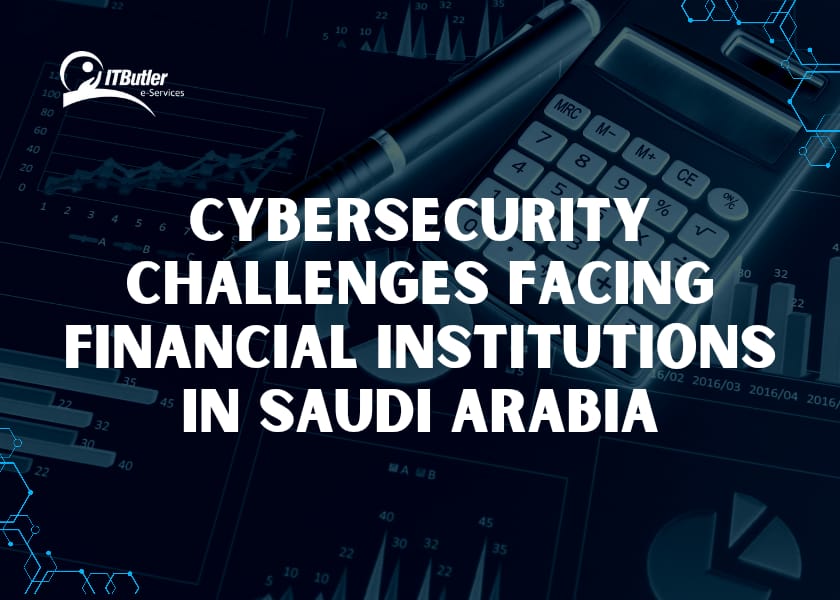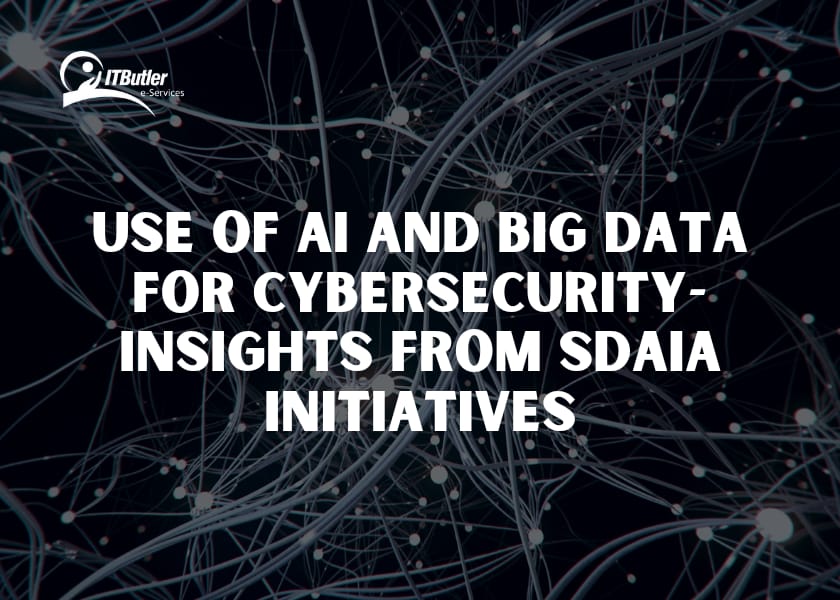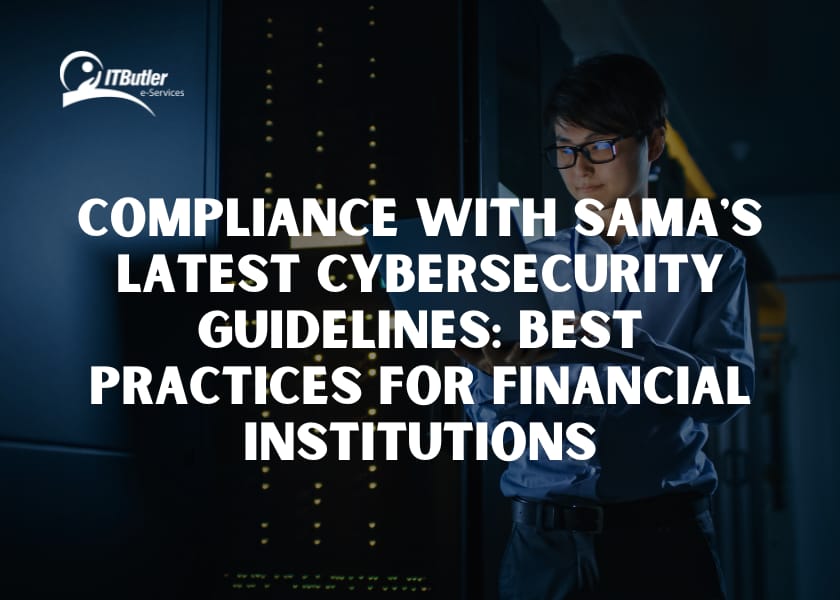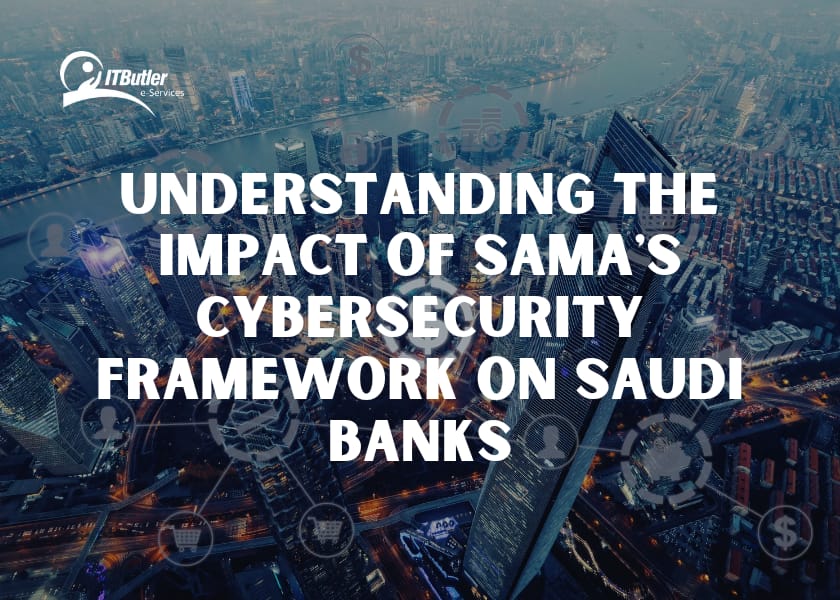The financial sector in Saudi Arabia is at the forefront of the country’s economic development, playing a critical role in driving growth and stability. However, as financial institutions embrace digital transformation, they are increasingly exposed to a wide range of cyber threats. Cyber security has become a top priority for these institutions, as the potential consequences of a cyberattack can be devastating, leading to financial losses, reputational damage, and regulatory penalties. In this blog post, we will explore the key cyber security challenges facing financial institutions in Saudi Arabia, and how ITButler e-Services, based in Saudi Arabia and Dubai, is helping these institutions mitigate risks and strengthen their cyber security posture.
Introduction to Cyber Security
Cyber security refers to the practices, technologies, and processes to protect systems, networks, and data from cyber threats. In financial institutions, cyber security is crucial for safeguarding sensitive information, ensuring the integrity of financial transactions, and maintaining customer trust. As cyber threats become more sophisticated and prevalent, financial institutions must adopt comprehensive cyber security strategies to stay ahead of potential risks.
Cyber Security Risks in the Financial Sector: Saudi Arabia’s Preparedness
The financial sector is a prime target for cybercriminals due to the vast amounts of sensitive data and financial assets it manages. In Saudi Arabia, financial institutions face a unique set of cyber security challenges, driven by the rapid adoption of digital technologies, regulatory requirements, and the evolving threat landscape. Below, we discuss some of the most pressing cyber security risks in the financial sector and Saudi Arabia’s preparedness to address these challenges.
1. Data Breaches and Data Theft
Data breaches are among the most significant cyber security threats facing financial institutions. Cybercriminals often target financial institutions to gain access to sensitive customer information, including personal identification data, credit card numbers, and bank account details. A successful data breach can lead to severe financial losses, legal liabilities, and reputational damage.
In response to this threat, financial institutions in Saudi Arabia have implemented stringent data protection measures, including encryption, access controls, and regular security audits. The Saudi Arabian Monetary Authority (SAMA) has also issued regulations and guidelines to ensure that financial institutions adhere to best practices in data protection.
2. Ransomware Attacks
Ransomware attacks have become increasingly common in the financial sector, where cybercriminals use malicious software to encrypt critical data and demand a ransom for its release. These attacks can disrupt financial operations, leading to significant financial losses and operational downtime.
To combat ransomware, financial institutions in Saudi Arabia are investing in advanced threat detection and response capabilities, as well as employee training to recognize and avoid phishing attempts, which are often the entry point for ransomware attacks.
3. Advanced Persistent Threats (APTs)
Advanced Persistent Threats (APTs) are sophisticated cyberattacks that target financial institutions over an extended period. APTs are typically carried out by state-sponsored actors or highly organized cybercriminal groups, to gain unauthorized access to critical systems and data.
Saudi Arabia’s financial institutions are enhancing their cyber security defenses to detect and mitigate APTs. This includes the use of threat intelligence, continuous monitoring, and incident response capabilities to identify and neutralize APTs before they can cause significant harm.
4. Insider Threats
Insider threats, where employees or contractors intentionally or unintentionally compromise an organization’s cyber security, pose a significant risk to financial institutions. Insider threats can result from malicious intent, negligence, or the exploitation of privileged access by cybercriminals.
Financial institutions in Saudi Arabia are implementing robust access control mechanisms, monitoring employee activities, and conducting regular security awareness training to mitigate the risk of insider threats. Additionally, the adoption of a zero-trust security model is gaining traction, where trust is never assumed, and verification is required for all users and devices.
5. Supply Chain Attacks
Supply chain attacks occur when cybercriminals compromise a third-party vendor or partner to gain access to a financial institution’s systems. These attacks are particularly challenging to defend against, as they exploit the trust and relationships between organizations.
To address the risk of supply chain attacks, financial institutions in Saudi Arabia are conducting thorough due diligence on their vendors and partners, implementing strict security requirements, and continuously monitoring third-party activities.
6. Regulatory Compliance Challenges
The regulatory landscape in Saudi Arabia is evolving rapidly, with new cyber security regulations and standards being introduced to protect the financial sector. Compliance with these regulations is essential for financial institutions to avoid penalties and maintain their licenses to operate.
Financial institutions in Saudi Arabia are working closely with cyber security companies to ensure compliance with regulations such as SAMA’s Cyber security Framework. This includes conducting regular compliance audits, implementing robust risk management practices, and staying up-to-date with regulatory changes.
Emerging Trends in Cyber Security for Financial Institutions
As financial institutions in Saudi Arabia continue to enhance their cyber security defenses, several emerging trends are shaping the future of cyber security in the sector. These trends include the adoption of artificial intelligence (AI) and machine learning, the rise of cloud security, and the growing importance of identity and access management (IAM).
1. Artificial Intelligence and Machine Learning
AI and machine learning are playing an increasingly important role in cyber security, enabling financial institutions to detect and respond to threats more effectively. These technologies can analyze vast amounts of data in real time, identifying patterns and anomalies that may indicate a cyberattack. By leveraging AI and machine learning, financial institutions can enhance their threat detection capabilities and respond to incidents more quickly.
2. Cloud Security
As more financial institutions migrate their operations to the cloud, the need for robust cloud security measures is growing. Cloud environments present unique security challenges, including data breaches, misconfigurations, and unauthorized access. Financial institutions in Saudi Arabia are investing in cloud security solutions to protect their cloud-based assets and ensure compliance with regulatory requirements.
3. Identity and Access Management (IAM)
Identify and Access Management IAM is a critical component of cyber security for financial institutions, as it helps control who has access to sensitive systems and data. With the rise of remote work and digital banking, IAM solutions are becoming more important than ever. Financial institutions in Saudi Arabia are implementing IAM solutions to enforce strong authentication, manage user identities, and ensure that access is granted only to authorized individuals.
ITButler e-Services: Your Trusted Cyber Security Partner
ITButler e-Services, based in Saudi Arabia and Dubai, is a leading provider of cyber security solutions for financial institutions. We understand the unique challenges facing the financial sector and offer a comprehensive range of services designed to protect your organization from cyber threats. Our services include:
- Threat Detection and Response: We provide advanced threat detection and response capabilities to identify and neutralize cyber threats before they can cause harm. Our solutions leverage AI and machine learning to enhance threat detection and provide real-time incident response.
- Data Protection and Encryption: We offer data protection and encryption services to safeguard your sensitive information from unauthorized access and data breaches. Our solutions ensure that your data is protected at rest and in transit.
- Regulatory Compliance Support: We help financial institutions navigate the complex regulatory landscape in Saudi Arabia, ensuring compliance with cyber security regulations and standards. Our services include compliance audits, risk assessments, and regulatory reporting.
- Insider Threat Management: We provide solutions to detect and mitigate insider threats, including access control, activity monitoring, and security awareness training. Our insider threat management services help protect your organization from both malicious and negligent insiders.
- Cloud Security: We offer comprehensive cloud security solutions to protect your cloud-based assets and ensure compliance with cloud-related regulations. Our services include cloud security assessments, configuration management, and continuous monitoring.
Conclusion
The cyber security challenges facing financial institutions in Saudi Arabia are complex and evolving, requiring a proactive and comprehensive approach to risk management. As cyber threats continue to grow in sophistication, financial Services must invest in advanced cyber security solutions to protect their systems, data, and customers. ITButler e-Services is committed to helping financial institutions in Saudi Arabia and Dubai navigate these challenges, offering tailored cyber security solutions that address the unique risks facing the financial sector. By partnering with ITButler e-Services, financial Services can enhance its cyber security posture, ensure regulatory compliance, and safeguard their critical assets in an increasingly digital world.






